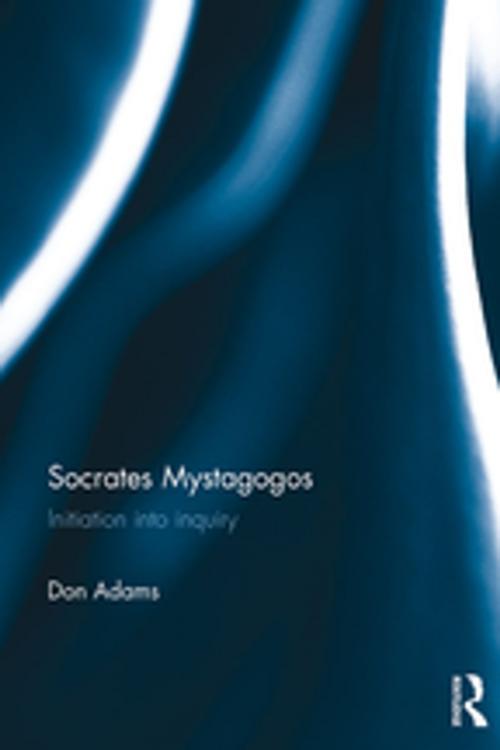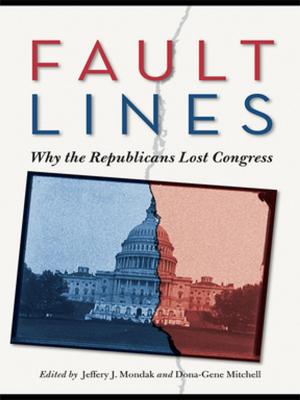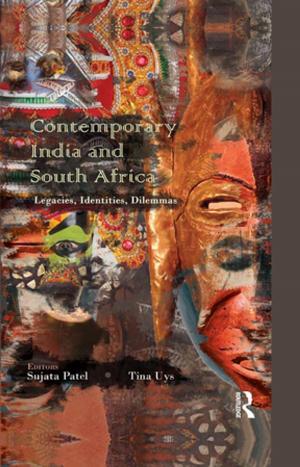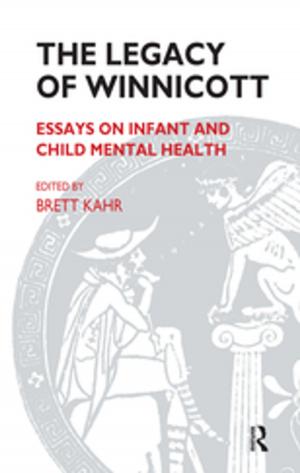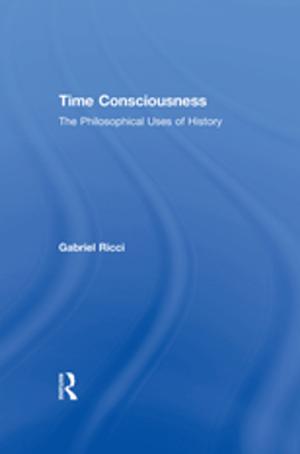| Author: | Don Adams | ISBN: | 9781317052890 |
| Publisher: | Taylor and Francis | Publication: | October 14, 2016 |
| Imprint: | Routledge | Language: | English |
| Author: | Don Adams |
| ISBN: | 9781317052890 |
| Publisher: | Taylor and Francis |
| Publication: | October 14, 2016 |
| Imprint: | Routledge |
| Language: | English |
For Socrates, philosophy is not like Christian conversion from error to truth, but rather it is like the pagan process whereby a young man is initiated into cult mysteries by a more experienced man - the mystagogos - who prepares him and leads him to the sacred precinct. In Greek cult religion, the mystagogos prepared the initiate for the esoteric mysteries revealed by the hierophant. Socrates treats traditional wisdom with scepticism, and this makes him appear ridiculous or dangerous in the eyes of cultural conservatives. Nevertheless, his scepticism is not radical: custom is not something on which we must turn our backs if we are to pursue the truth. Socrates assumes an epistemology and employs a method by which he induces his companions to begin the critical and self-critical process of philosophical inquiry, not ignoring conventional wisdom, but thinking through and reinterpreting it as they make constructive progress towards the truth. He provides conclusive and convincing arguments in support of controversial answers to some of the most important moral questions he poses.
For Socrates, philosophy is not like Christian conversion from error to truth, but rather it is like the pagan process whereby a young man is initiated into cult mysteries by a more experienced man - the mystagogos - who prepares him and leads him to the sacred precinct. In Greek cult religion, the mystagogos prepared the initiate for the esoteric mysteries revealed by the hierophant. Socrates treats traditional wisdom with scepticism, and this makes him appear ridiculous or dangerous in the eyes of cultural conservatives. Nevertheless, his scepticism is not radical: custom is not something on which we must turn our backs if we are to pursue the truth. Socrates assumes an epistemology and employs a method by which he induces his companions to begin the critical and self-critical process of philosophical inquiry, not ignoring conventional wisdom, but thinking through and reinterpreting it as they make constructive progress towards the truth. He provides conclusive and convincing arguments in support of controversial answers to some of the most important moral questions he poses.
